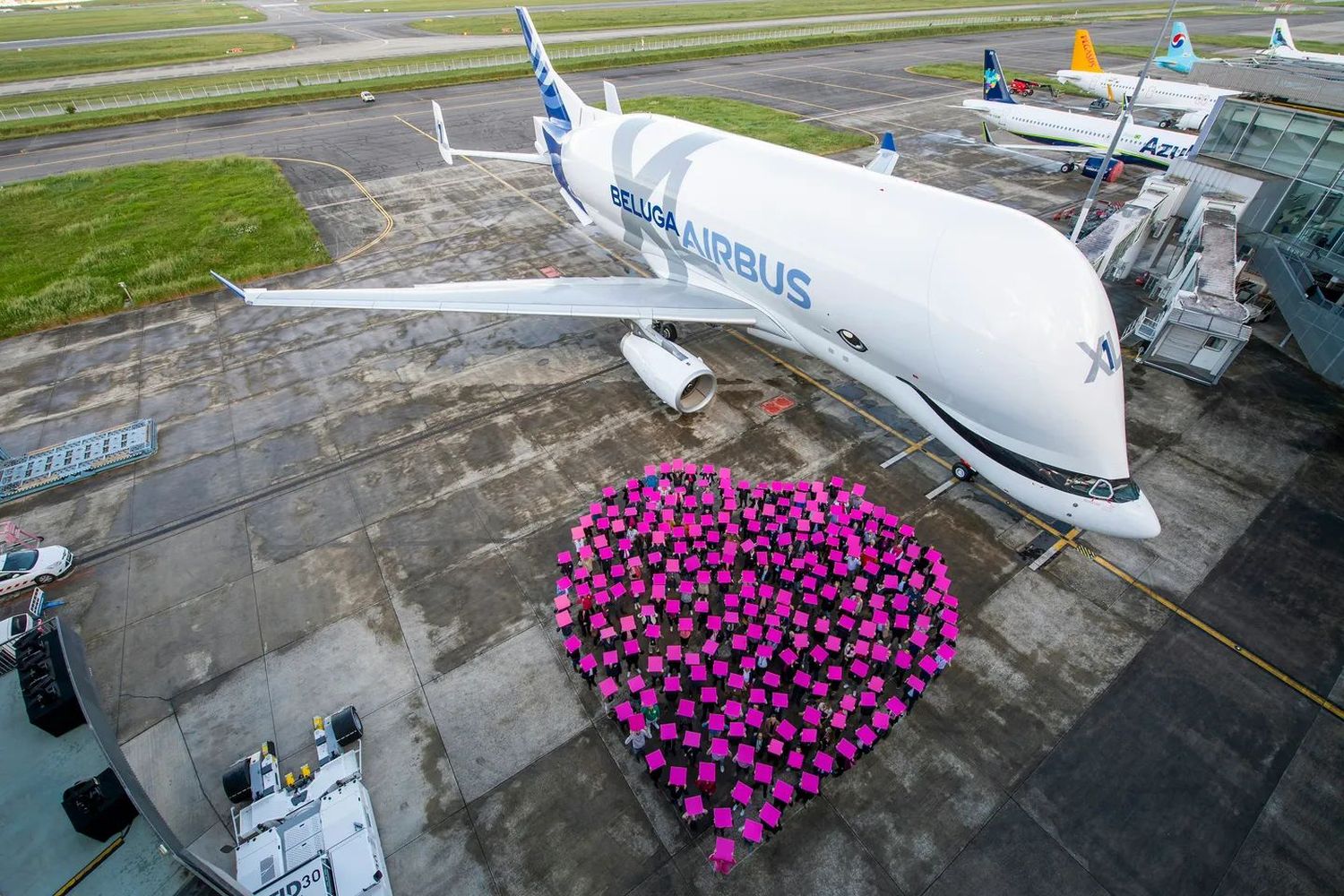Final BelugaXL Joins Airbus Fleet, Marking Program Completion
This month, the last BelugaXL joined its five predecessors at Airbus Transport International (ATI) after serving as the program’s test platform since 2018. This new model, successor to the iconic A300-600ST ‘Beluga,’ aims to strengthen the company’s industrial capabilities.
The BelugaXL offers 30% more payload capacity compared to its predecessor. According to the company, the six specially commissioned aircraft, built in Toulouse, France, transport sub-assemblies and components between Airbus’ manufacturing sites in Europe. Each mission averages a turnaround time of just 70 minutes, thanks to specially designed loading facilities at plants in France, Germany, Spain, and the United Kingdom.
See also: Airbus’s Final Beluga XL: The Maiden Flight of a Giant
The final handover to ATI marks the closure of the BelugaXL program, launched in 2014. The company details that the development team was centralized, bringing together some 1,000 Airbus engineers and suppliers to shorten decision loops and simplify processes.
“We created the BelugaXL, but also what we called the BXL spirit – making the impossible possible,” says Bertrand George, who led the plane’s development. “Our instructions were to halve the BXL’s original development cost, and deliver the first aircraft – certified as a normal A330ceo – within five years.»
George recalls the emotion of the first flight: “What was a truck in the morning was an aircraft by the afternoon.”

Capabilities and Sustainability
Based on the A330-200 freighter, each BelugaXL has a payload capacity of 51 tonnes and a range of 2,200 nautical miles. The company describes itself as committed to sustainability, highlighting that the BelugaXL fleet can operate with a blend of sustainable aviation fuel (SAF).
In 2023, SAF accounted for over half of ATI’s fuel consumption. According to the company, by 2030, the entirety of the fleet’s flight operations will be performed with SAF. The greater capacity of the BXL is expected to reduce the number of flights required compared to its predecessor.
ATI plans to operate the BelugaXL for thirty years. The program’s production infrastructure is being decommissioned and stored, in case additional BXLs are needed in the future. With the last aircraft joining the fleet, Airbus concludes a significant chapter in its internal air transport history.


Comentarios
Para comentar, debés estar registrado
Por favor, iniciá sesión